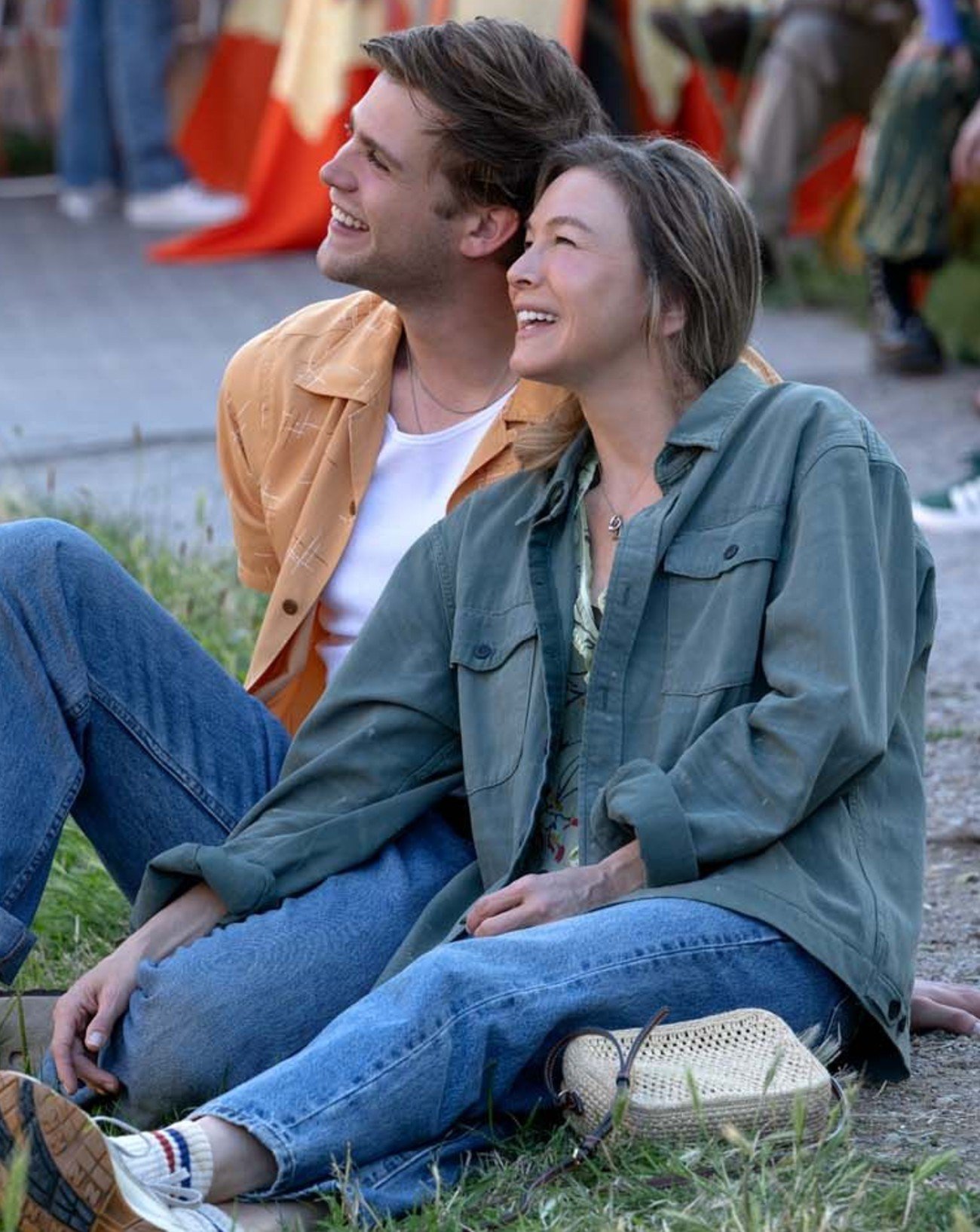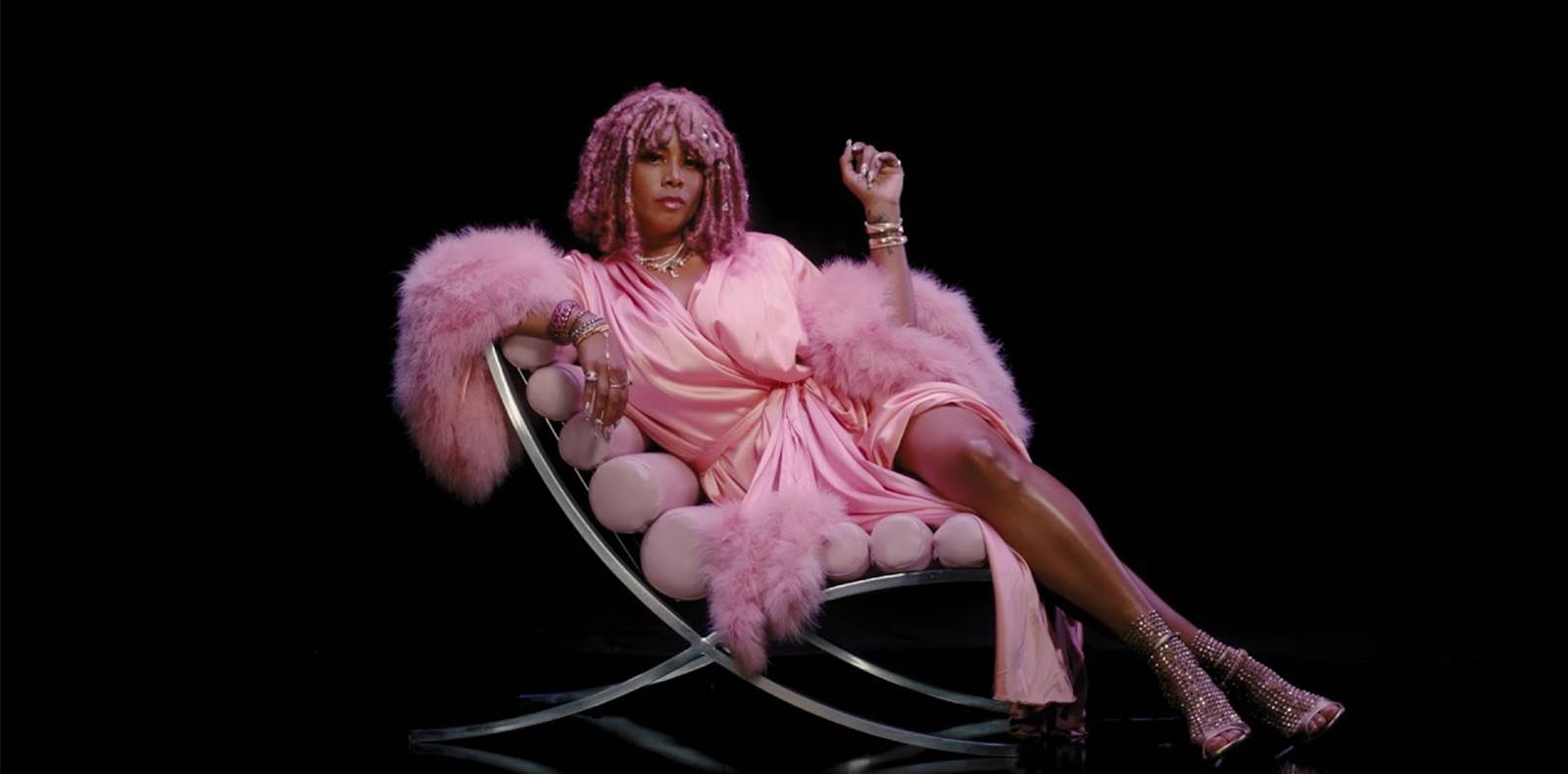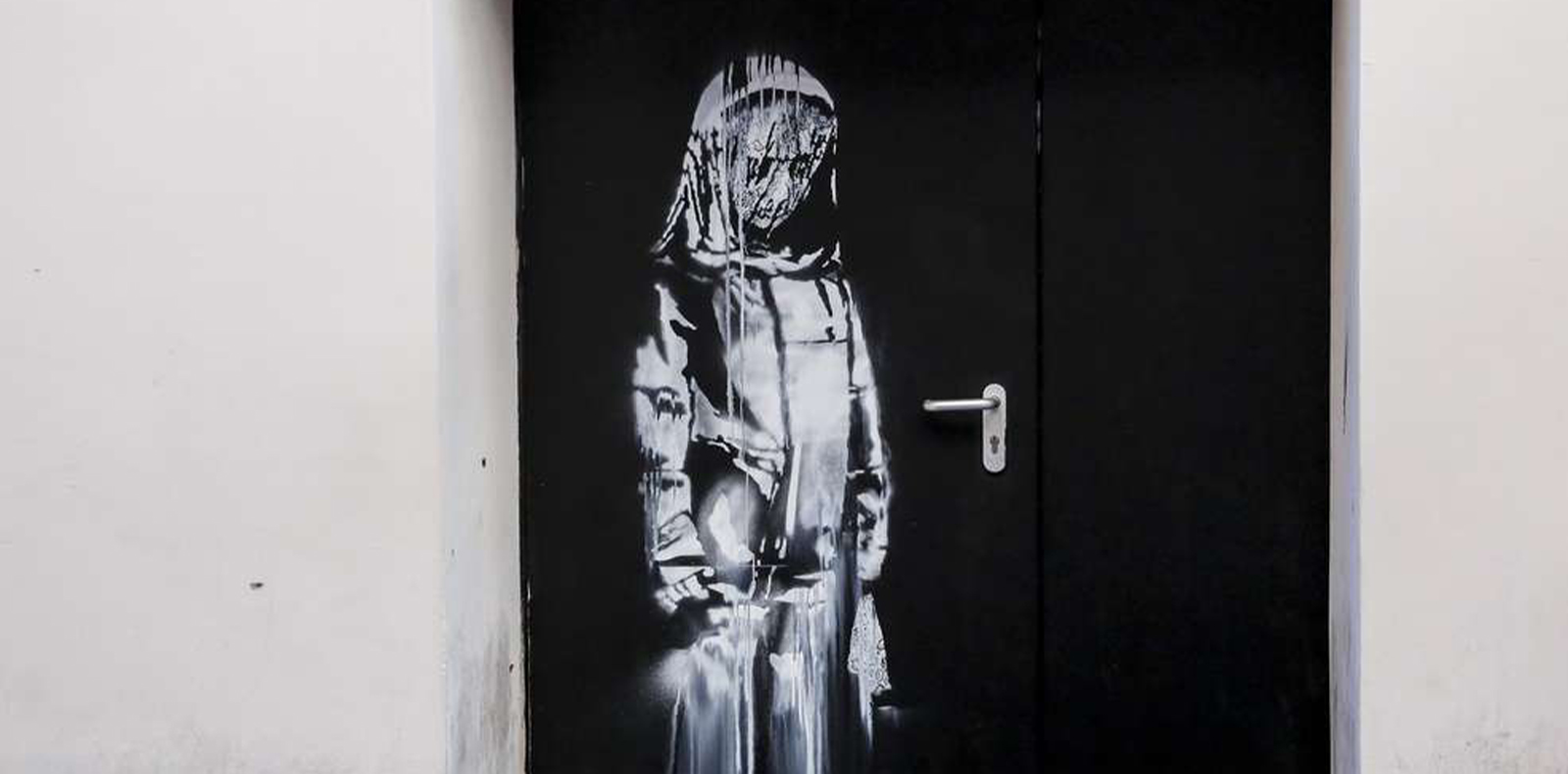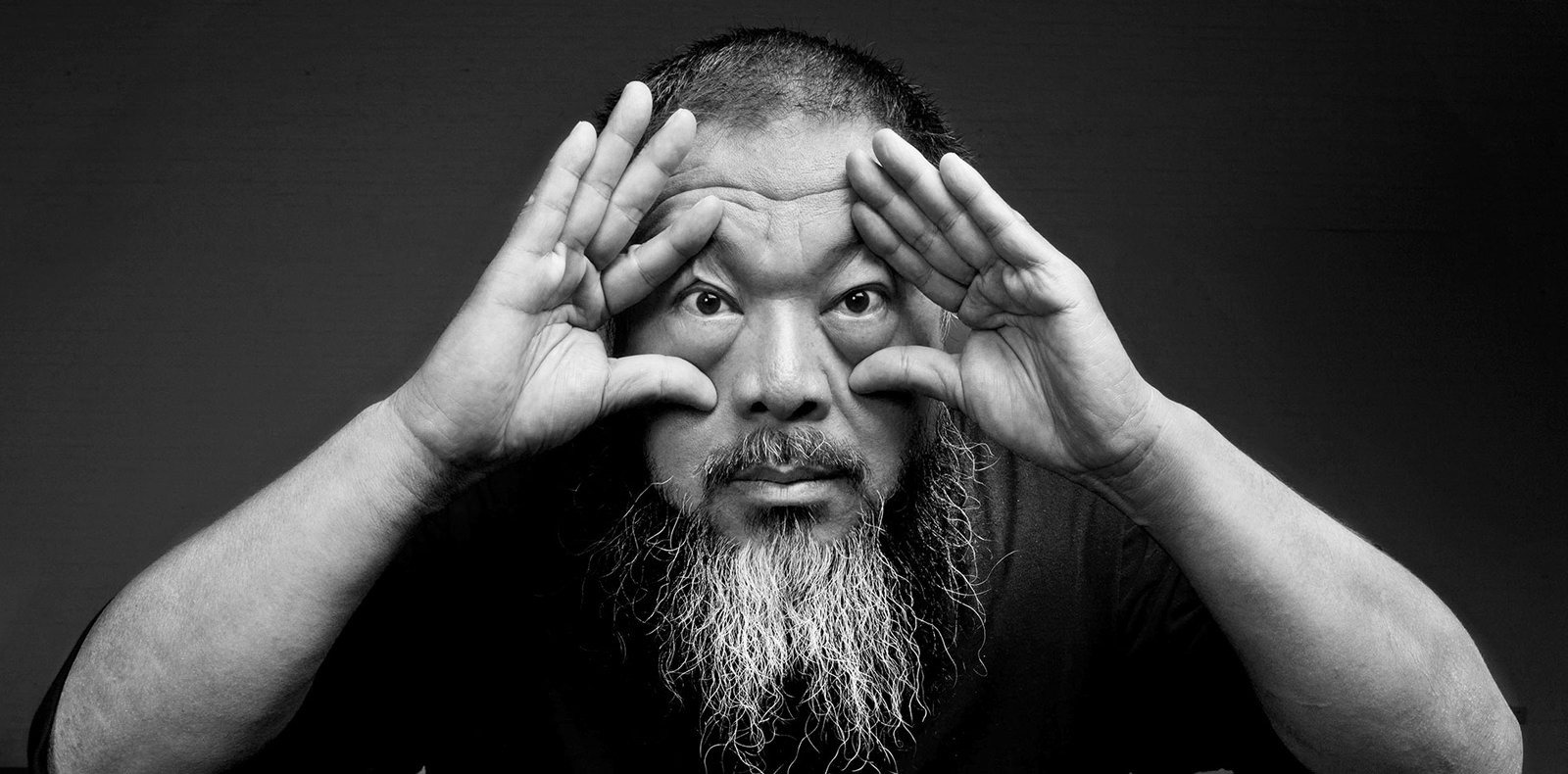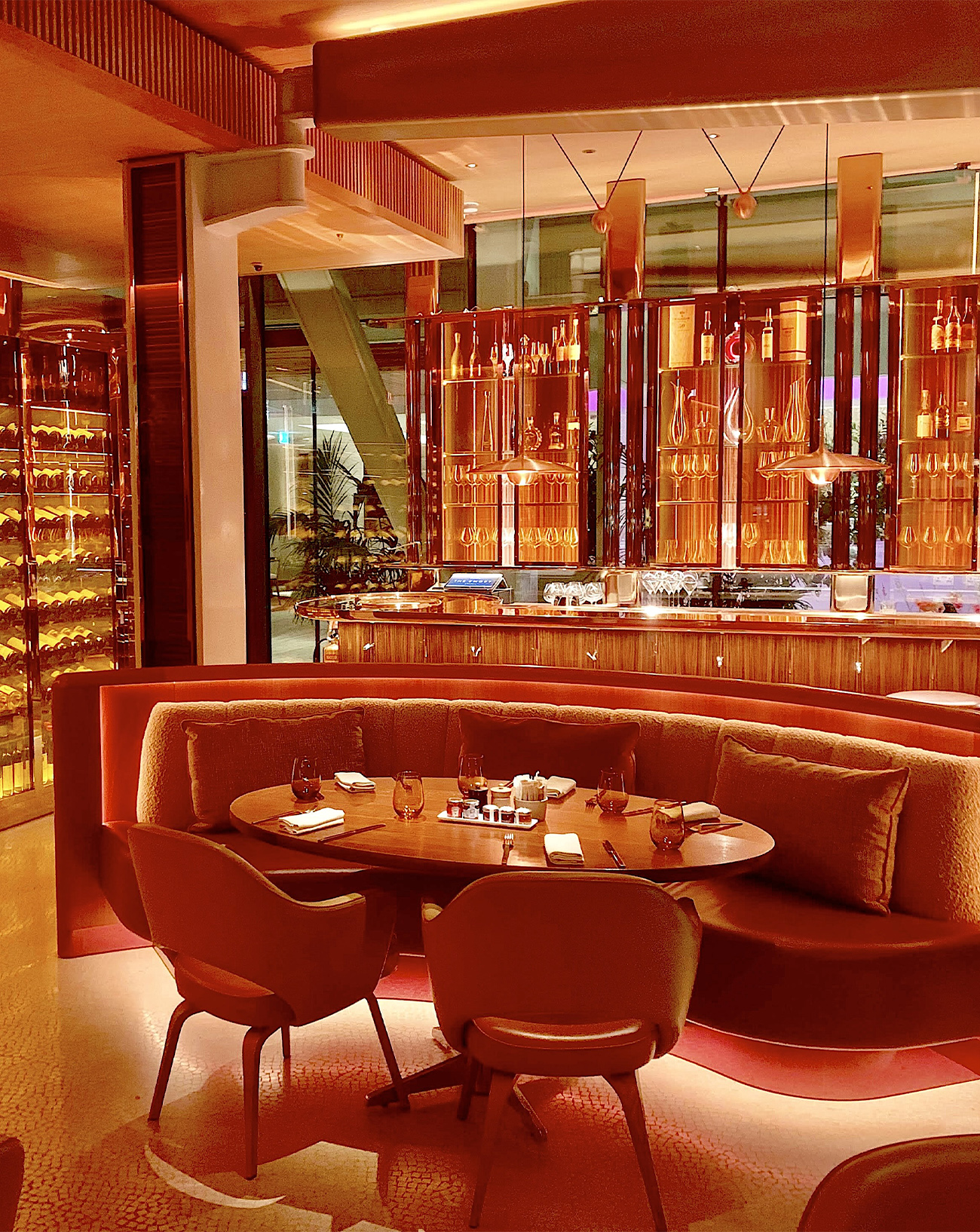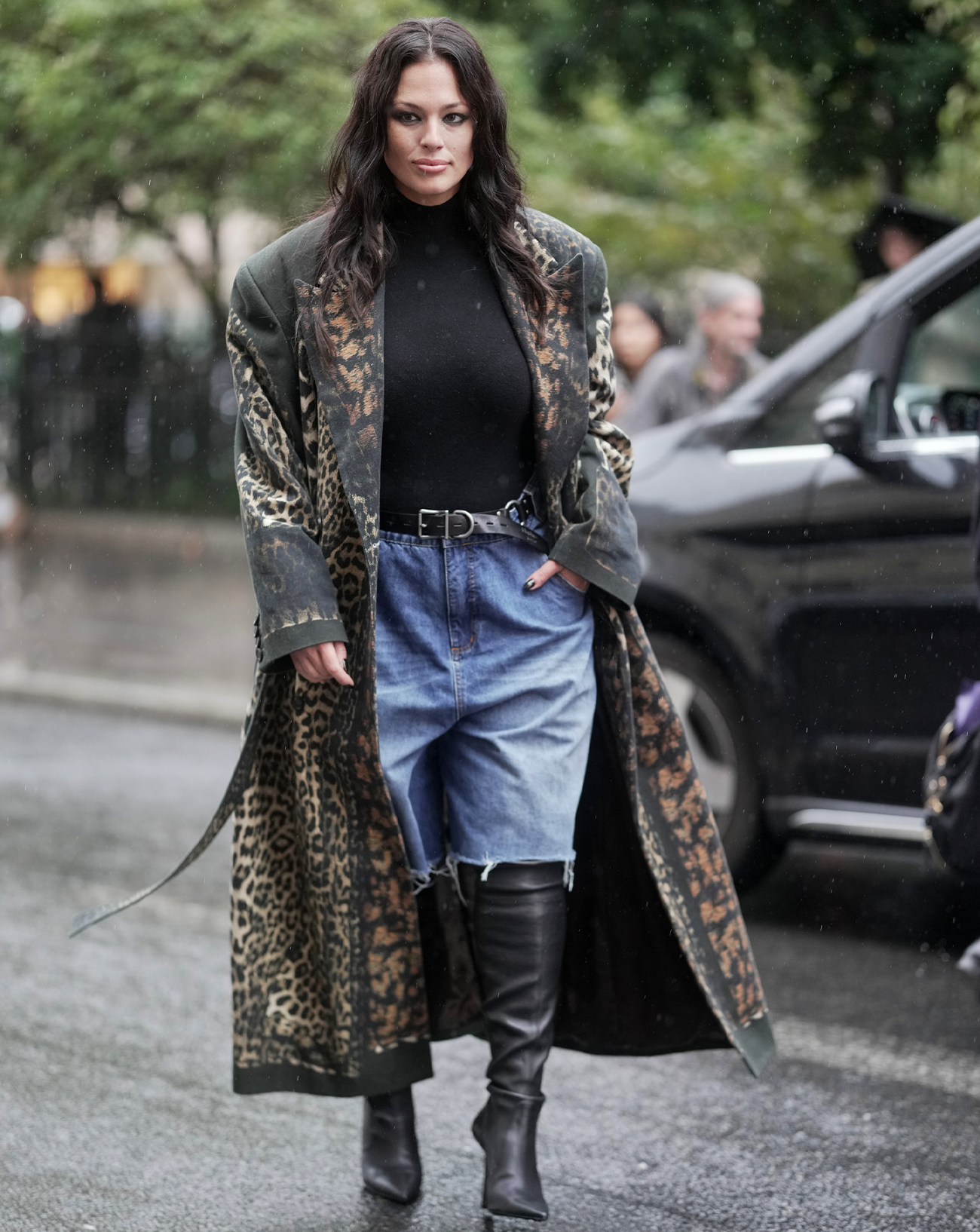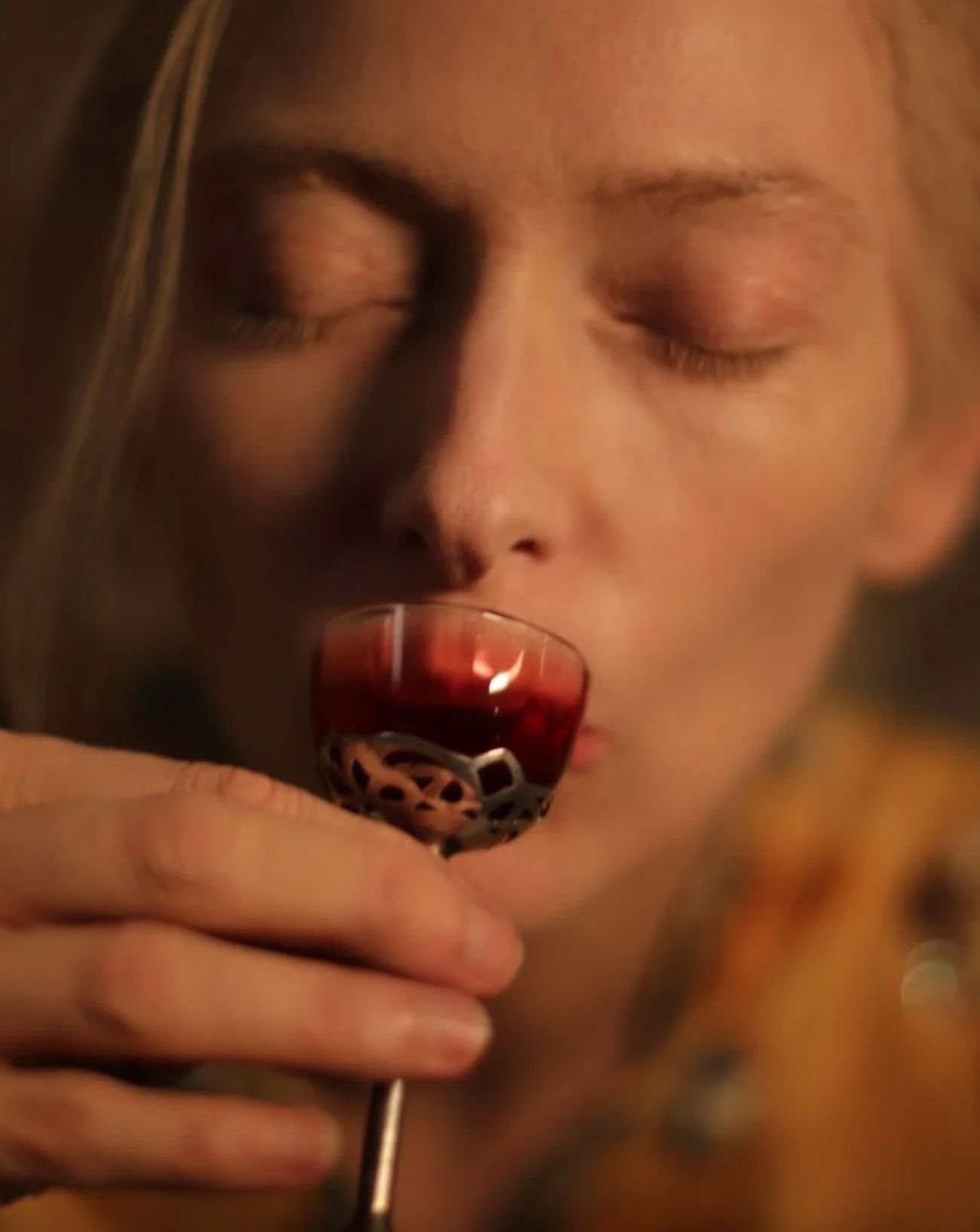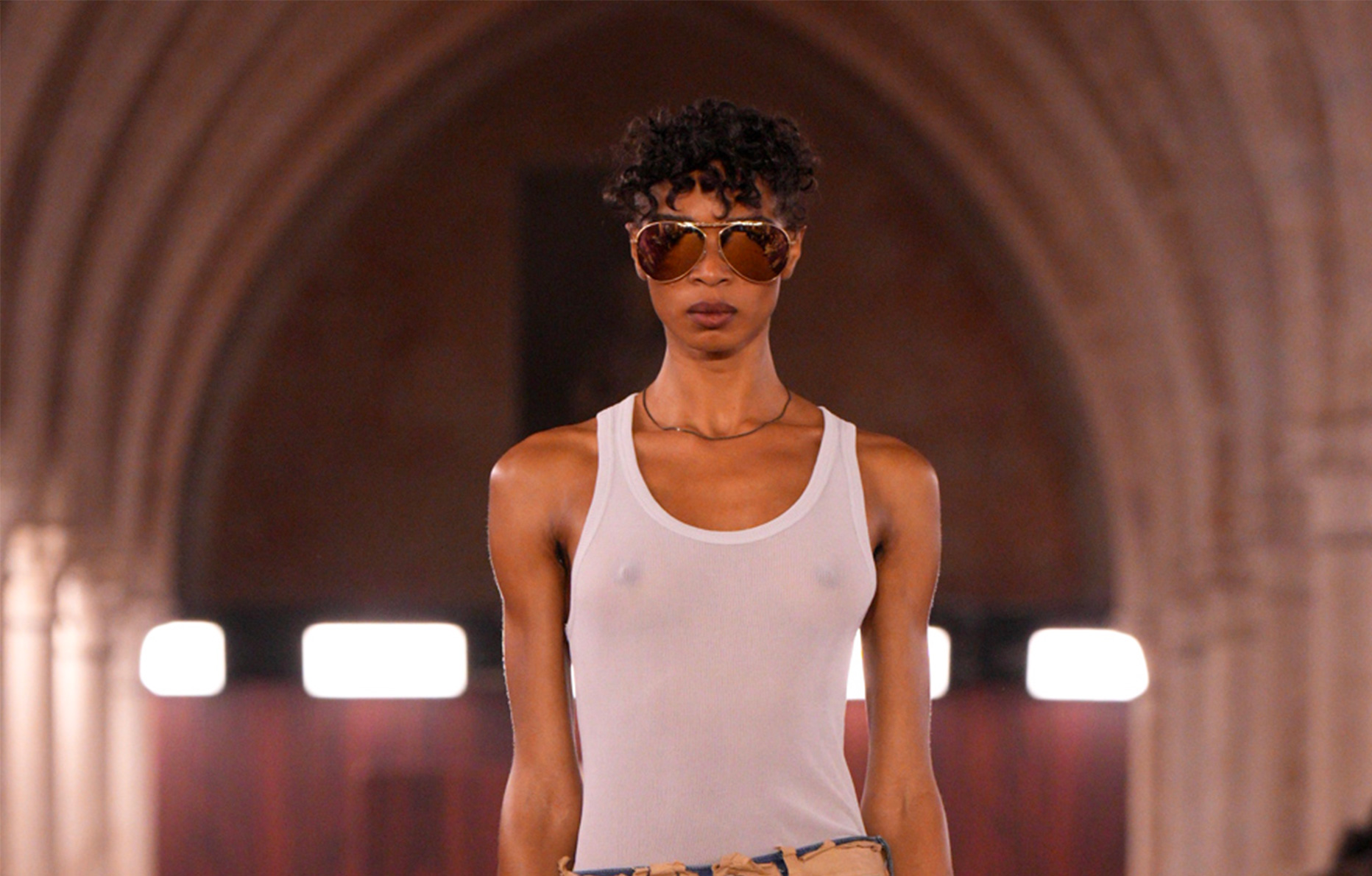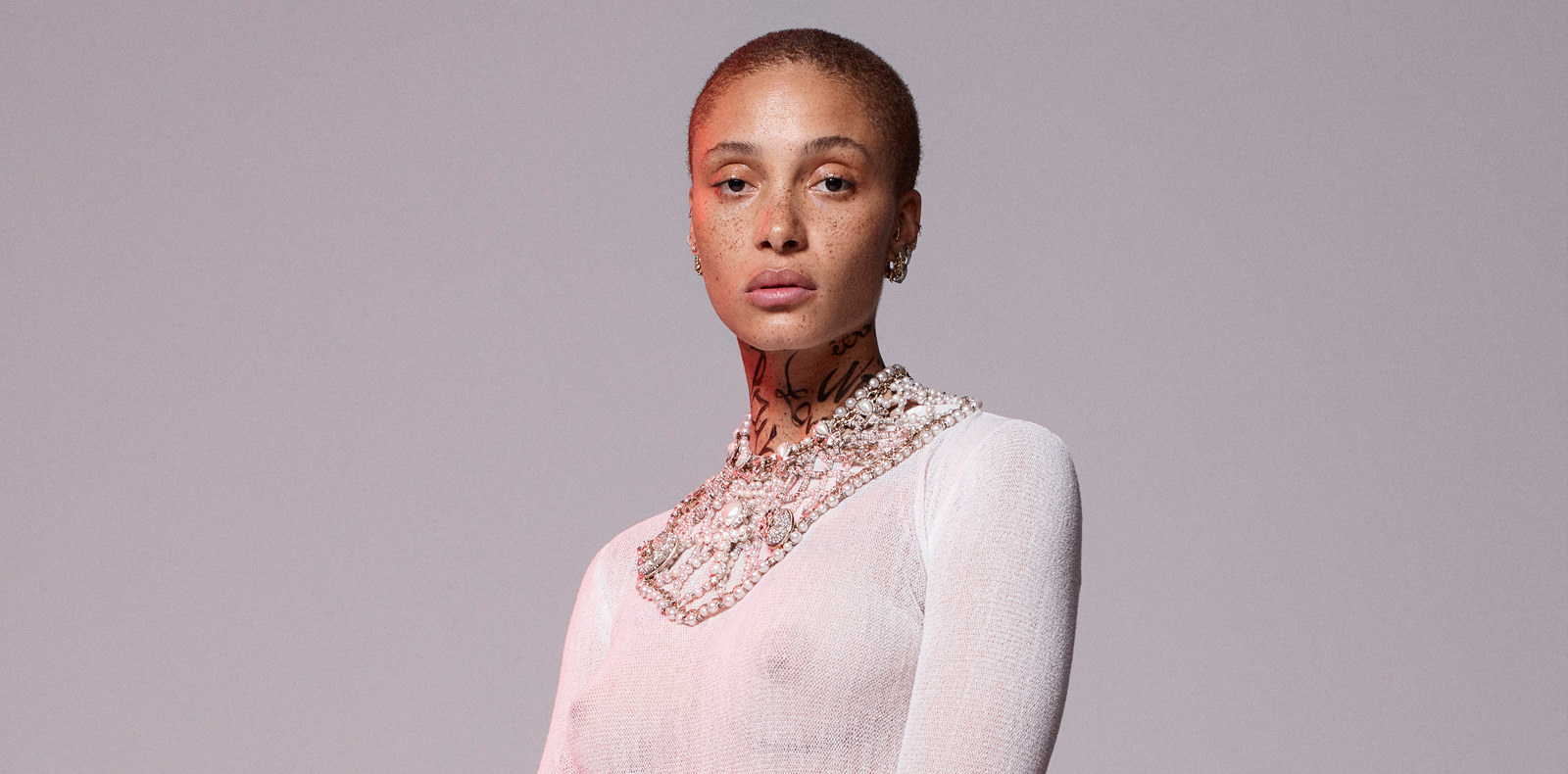
4

4
“Sexual abuse is very prominent in Ghana.” Adwoa Aboah, the celebrity model who helps young women
Fêted by the entire fashion industry, 26-year-old British model Adwoa Aboah has decided to use her fame to help young women the world over by setting up Gurls Talk, a safe space for discussing subjects as diverse as mental health and sexual abuse.
Photos by Jean-Baptiste Mondino,
Styling by Babeth Djian,
Interview by Delphine Roche.
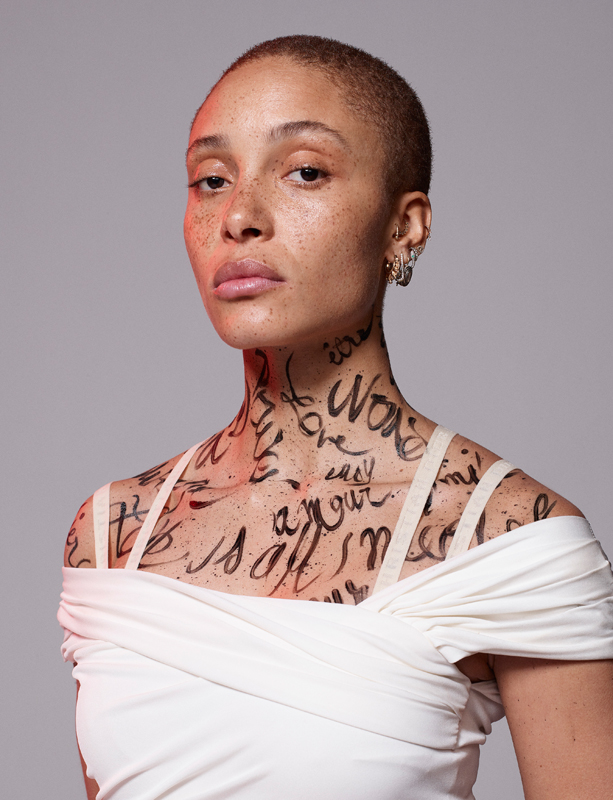
Numéro : You grew up in West London. What was your childhood there like?
Adwoa Aboah : When my mother had me she was about 25, and she’s lived there, in the same house in West London, ever since. She’s from up north, the Lake District, and my dad is from Ghana. Growing up in London was the best thing in the world – it’s one of my favourite places, if not my favourite place in the world. Even though it’s grey and gloomy, and everyone is quite grumpy there, there’s something really comforting about it – I feel very grounded when I’m there. It’s not too boring, nor too manic, as New York can be. I still have the same friends I grew up with. At 13 I was sent to boarding school in the countryside.
How was it there?
It was awful. Boarding school wasn’t for me. I wasn’t supposed to be in a bubble – I was so used to having different age groups around, hanging out with older people, hanging out with younger people. And there were so many rules at boarding school, in this weird bubble. I hated it!
Is it around that time that you started having anxiety problems and feeling depressed?
Yes.
“Gurls Talk is definitely helping me a lot. Stopping to think about myself and taking the time to think about others is what gets me up in the morning – it’s completely therapeutic. It’s quite funny that I had to go through such pain, feelings of uneasiness and loss to get to this point in my life.”
Did you know already what you wanted to do with your life? What was your perception of the fashion industry?
I don’t think I even had a perception of it, because I was so involved in it because of my parents’ jobs, and the jobs of their friends. It all felt quite normal, and the fashion industry people were family friends. In a way it was very exciting – I love that I met all types of people so early, straight, gay, black, white… It’s probably one of the things that I found difficult about boarding school – it felt isolated, straight and boring. So that was the kind of perception that I had of the fashion industry. But I definitely didn’t think that I was going to be a part of it or that I was going to model.
Were you into theatre?
Yes. When I was about 13, I found my love of theatre. Besides a few friends, it’s one of the few positive things I found at boarding school. Theatre is something I carried on after school and into university. I don’t think I knew at all what I wanted to do, although I knew for sure I wanted to be independent, so slowly but surely I fell into modelling. But at first I also had to work in shops and I was a nanny for a bit, as well as going to university. I think also when you’re so uncomfortable in your skin, and you’re so uncomfortable in general, finding out what you want to do in life is like… I didn’t really have time to think about it, I was already kind of lost anyway, so thinking that far in the future was terrifying. I just tried to deal with the present. When you’re depressed, you feel that inability to get up in the morning and do your work. Everything just felt complacent and heavy. I wasn’t lazy, I got through university and I did my jobs, but it wasn’t exciting, I didn’t put my heart into it.
It’s difficult to imagine that you had such thoughts back then, because seeing you today you’re so full of energy.
I know, it feels totally mad now. But I did a lot of work on myself and I continue to do so.
Did you feel that mental health was something vital to talk about when you started your Gurls Talk platform?
Depression and anxiety, although people can’t see them, are actually very physical. And you can’t speak about it. I couldn’t put into words what I was going through. I didn’t even really understand what it was. That uneasy feeling that I had in my stomach, I thought it was just stomach cramps. But now I know they were signs of anxiety, these are things that you learn when you get older, and when you are educated, you find out more about yourself. Gurls Talk is definitely helping me a lot. Stopping to think about myself and taking the time to think about others is what gets me up in the morning – it’s completely therapeutic. There’s nothing else in the world that gives me more joy than what I do with Gurls Talk. It’s quite funny that I had to go through such pain, feelings of uneasiness and loss to get to this point in my life. I’m really lucky that I found that light, and found such joy in it. And it feels strange to think about the girl that I used to be, who was so uncomfortable but had to put up a façade and a mask to keep everyone at bay, and make up that I was fine, I was fine, I was fine. So now I try to be as open as possible, I protect myself, but I advocate talking about things, being open and vulnerable and using that as a tool for strength.
Did you ever suffer from racism growing up?
Looking back, probably. It was all under the radar and it is very much like that in Britain, I think. I was in a predominantly white school, so I felt like an outcast for sure, I didn’t feel white enough, and I didn’t feel black enough. I never suffered the kind of outspoken racism that some people have had to deal with, it was always sly. It’s only now that I’m older, looking back, that I have some understanding of it.
How did you feel about taking Gurls Talk to Ghana?
In 2018, I decided I wanted to take Gurls talk to Ghana, and we did it in 2019. It’s so wonderful that my team and I are so much on the same page, we are so dedicated. It was so surreal. Usually I’m a lot more involved in the panels, but this time I just took a back seat and introduced every single panel, and I was obviously there, but I mostly took the time to watch as things happened. And it was so beautiful to see that, as the day went on, people were starting to feel more comfortable. They started putting their hands up, the energy lifted and people started sharing more. And it was beautiful to see that Gurls Talk is needed all over the world, but it doesn’t mean that I’m needed all over the world. I’ll always be there, but what is important when you go to other countries is to give the women who live there a platform to share their messages. It doesn’t have to be me speaking because there are women in these countries who know better. I empathize and I can feel all sorts of emotions, but do I understand what it’s like to be a girl living in Poland, for example? No.
“It takes time to understand that you need to follow your guts and stick to your own plan, your own journey, find out what that journey is. I was lucky to find mine.”
What was the most difficult topic to talk about in Ghana?
Sexual abuse. It happens in schools, in universities and it’s a big taboo, it’s being swept under the carpet, but it’s very prominent. So they spoke about that a lot. That’s when girls were putting their hands up a lot, sharing these horrible stories. They felt safe enough to talk about it, that was the beauty of it. Because these girls really need help, and what they have to go through is constantly being denied.
When did you decide that you wanted to use your voice, that modelling alone was not enough?
When I got better. I mean, recovery is a continuous journey, but… It was kind of accidental telling my story; I was among a group of women who made me comfortable enough to share what was going on in my life. And from then on, it kind of went into the most amazing direction, creating my platform, but I think I’ve always known that modelling wasn’t going to be the only thing I would do. And it’s beautiful that I made them align: since then I’ve been able to team up with brands that really understand what I’m trying to do and understand that my voice is important, that modelling, for me, is not about being an object. And I’ve always known that I wanted to use my voice, I think, although we all get sidetracked growing up, because we see certain people doing certain things. So we start to think, “Maybe I should be at that party, maybe I should hang out with these people.” It takes time to understand that you need to follow your guts and stick to your own plan, your own journey, find out what that journey is. I was lucky to find mine.
I suppose the moment when you decided to shave your head must have been a part of that?
It wasn’t a conscious decision, I didn’t shave my hair in protest, but it was just this kind of feeling of exhaustion at always trying to fit in, always trying to look like someone else, and I was just so bored with it, so I shaved it all off.
You spoke alongside Meghan Markle on International Women’s Day.
It was amazing. She’s amazing! Annie Lennox was there, the former prime minister of New Zealand too… It was amazing to be esteemed as highly as these women who have been advocating for women’s rights and female education for such a long time.
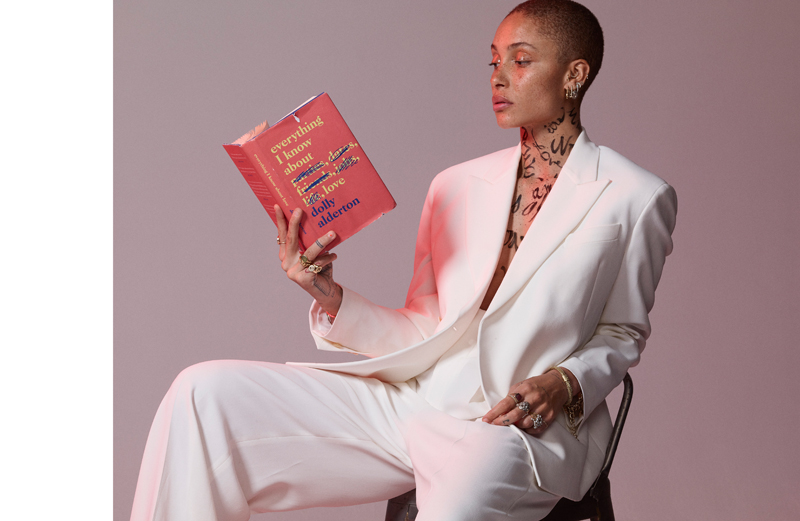
You’re also using your voice to support Amika George in the fight against the effects of the U.K. tax on female sanitary products.
Gurls Talk is really supporting Amika George in her fight against period poverty. Thanks to her action, a law was passed to give free sanitary products to all girls at school. She’s the one who did that and she’s only 17.
Are there other issues that you would like to tackle in the future?
I’d like to go further with suicide prevention, moving away from awareness towards action. Maybe it’s about setting up ambassadors in different countries, leaving them with the tools to carry on Gurls talk, setting up a place or a structure where girls can come to be educated on mental health, able to share confidentially in the space we’ve created. There’s so much that I want to do.
“I just think that the younger generations are asking the right questions. They’re not stuck in fear. They’re not stuck in ways that have been ingrained in society.”
You’ve held Gurls talk meetings in many countries – it must be quite a learning curve.
Yes, completely. I’ve learned so much through Gurls Talk about all sorts of communities. Not being fearful, asking myself questions and asking other people questions. My education was quite liberal, we weren’t religious, so talking to all these girls of Catholic upbringing in Poland was really interesting. Also, talking to girls who grew up in very strict African households, in Ghana… In our Gurls Talk events, you never see the same faces, the same body types. It’s so important, because we want to share all kinds of stories, so that people can relate.
How would you characterize the attitude of your generation and those younger than you?
I just think that the younger generations are asking the right questions. They’re not stuck in fear. They’re not stuck in ways that have been ingrained in society. They’re thinking outside the box. They’re calling out things that are inauthentic and not right. They’re doing the right thing, trying to make a difference. That attitude in itself is so amazing and powerful to be around. The girls, and the few men who come to my talks, are bored of just sitting there and doing what is expected of them. That’s what creates so much strength. We’re all looking for a community, because celebrity culture and the pressure of social media are quite terrifying. I’m so lucky, because I have a community now. I probably always had it, but I was completely unaware of it and was stuck in my own head.
Being a famous model, you’re an integral par t of this celebrity world. Would you say you need the Gurls Talk community in order to be able to function in that context?
Oh yeah, 100%. It gives me a new energy, it nurses the soul. Although of course I love the fashion industry, it’s exciting and we’ve come a long way from when I started modelling. Mostly, I’m so lucky because the fashion industry has given me a platform. So for me, it’s obvious that I should use that platform to help others with their message. It’s about learning together.






